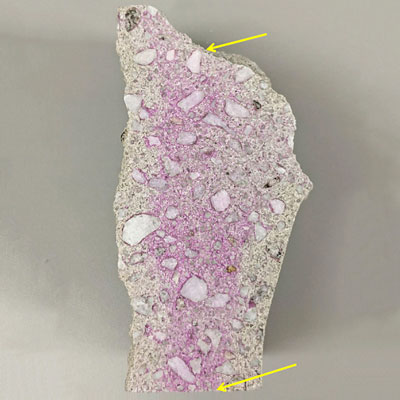National Concrete Masonry Association technicians are collecting block from a cross section of producer members for a two-year investigation measuring specimens’ carbon dioxide sequestration characteristics. Findings have the potential to arm the industry with critical CO2 uptake data plus delineate the sequestration rates and net volumes of dry cast versus conventional precast and cast-in-place concrete units or elements.

NCMA Research & Development Lab staff will oversee conditioning and controlled concrete masonry unit storage, testing specimens for sequestered CO2 at periodic intervals through mid 2023. The Association targets testing protocols for block producers to accurately and uniformly measure units’ uptake potential, which in turn can be used in messaging on the environmental benefits of concrete masonry construction.
The NCMA Research and Education Foundation approved “Assessment of CO2 Sequestration of Concrete Masonry” project funding last month during the 2021 convention. Work will build on positive indicators from 2020 pilot testing, where lab staff examined testing protocol feasibility and determined that concrete block has the potential to capture significantly higher volumes of CO2 from its surroundings than previously estimated. NCMA Vice President of Engineering Jason Thompson is project liaison.